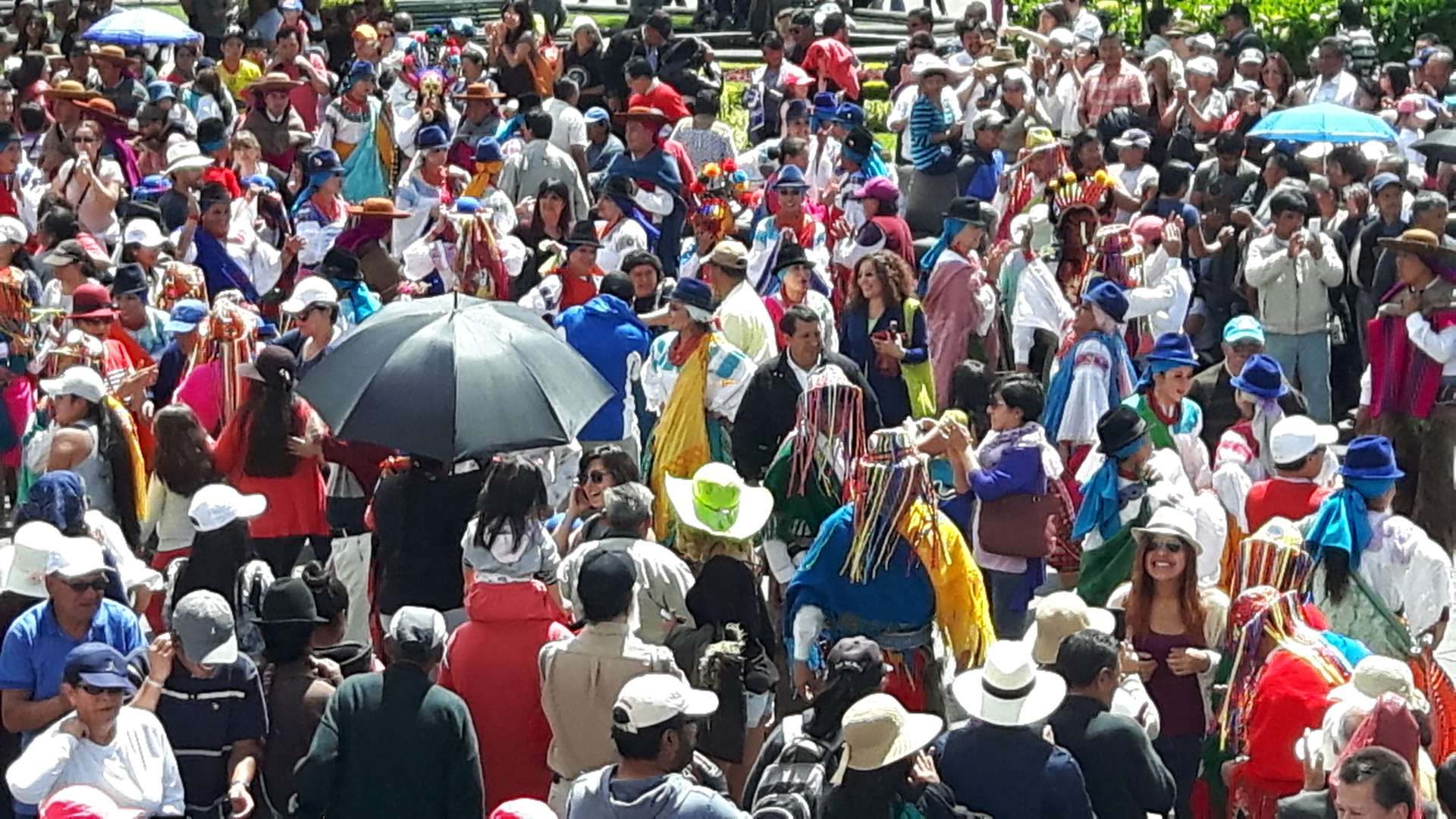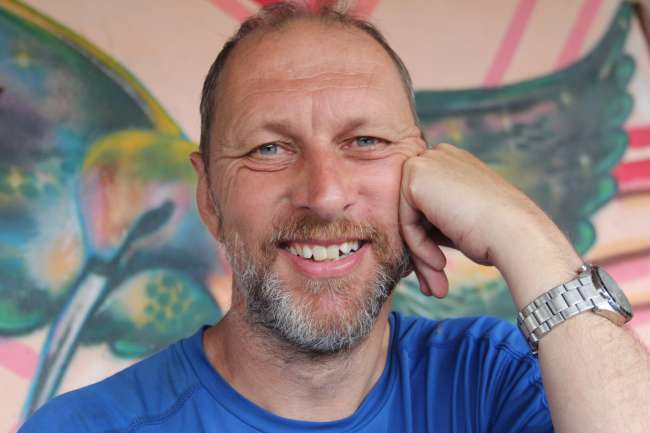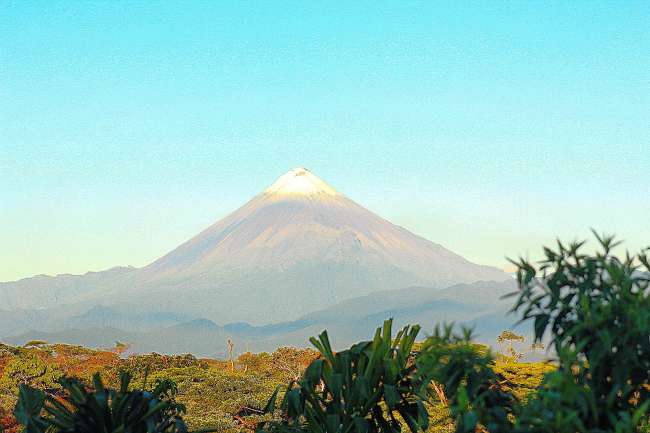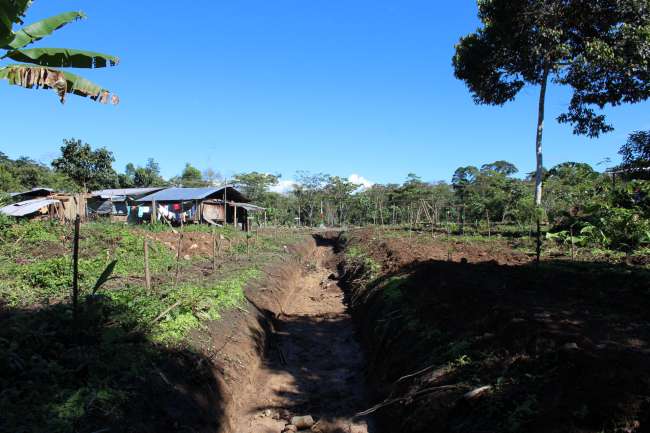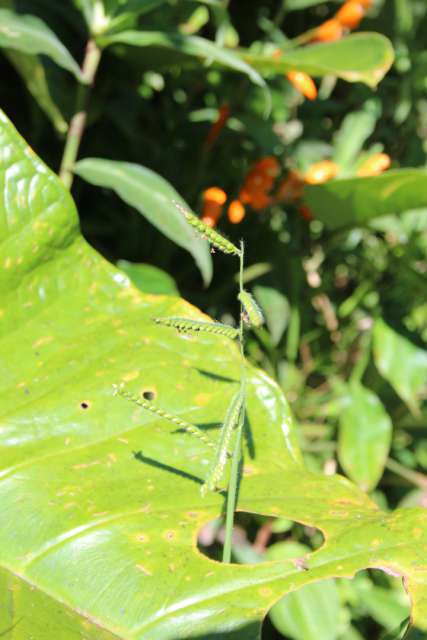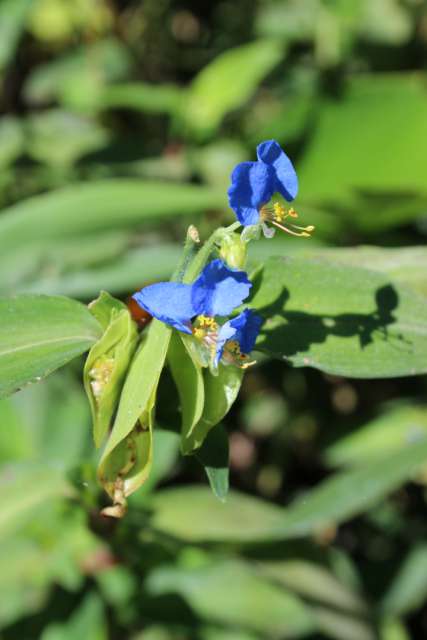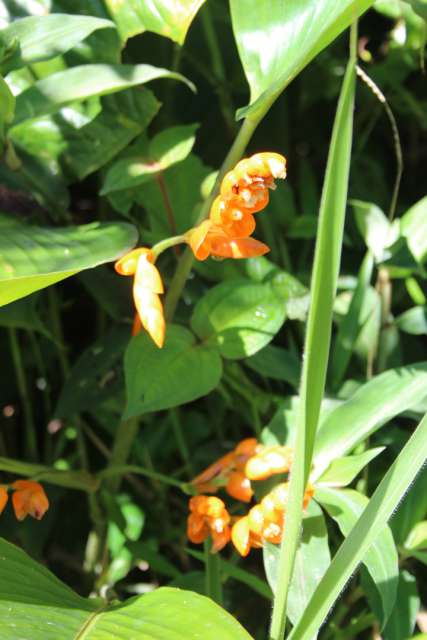Such and others
已發表: 09.06.2017
訂閱時事通訊
June 6, 2017
finally this morning: the Sangay can be seen, in all its glory. Anyway, a fantastic start to the day and I must say, the day stayed that way. Only blue sky, no clouds. So I took advantage of this to take some photos of the vivero and the planted areas, as well as some atmospheric photos, later to be used as desktop backgrounds or something.
I headed down to the village of Tawasap early in the morning. My goal was to charge all electronic devices. When I arrived, I saw that unfortunately the cable was missing from the tech studio, so I had to ask Maria to connect the devices one by one in the tienda. The only problem was that the tienda was locked and if Maria was away, no one could enter. But today was different. Maria asked if I wanted to see her artesanias. - Of course, gladly! - and they were inside the tienda. Earrings made from plant seeds, ankle bracelets made from anaconda skin with small shells for dancing, necklaces made from natural materials and small colorful beads. Of course, I felt like I had to buy something. So I picked out a few nice things thinking it would cost around $40. But the prices here in the selva are steep: I had to pay $112. Well, after a few seconds, it didn't bother me anymore. When I think about how they live here from hand to mouth and I walk around with several hundred dollars in my backpack every day. Besides, I plan to donate to the community here at the end of my stay. I will still do that, but on a smaller scale now. Just one hundred dollars, the rest I have already given as tip. I still have about three hundred dollars for the last four weeks and I can still withdraw money from an ATM in Quito.
Speaking of money: around noon, a well-dressed man showed up, introducing himself to Nanki and me as the coordinator of COICA. That is the cross-border, Latin American organization of indigenous peoples. I was impressed because it had only been half an hour since I had read about this organization in my book about Ecuador. Such an important man came to talk to Tzama? Oops!
Tzama and Maria were in Palora shopping at the time.
He told me a little about his office in Quito, asked me three times where I come from and if there are indigenous peoples there. Although I thought of the Appenzellers, Muotathalers, and Oberwallisers, I still said no. How can one be so ignorant?
Then he asked what kind of money we have in Switzerland and he was really eager to see it. I gave him a hundred-dollar bill and a twenty-dollar bill. He was delighted, wanted to know the value and sat in the office chair, which was there for cleaning purposes, taking pictures of the notes with his phone.
Man, that guy was money-hungry. Afterwards, he showed me a few more photos. Him in his office in Quito. Him in front of the entrance to his office building in Quito, both times wearing the headgear of the Shuar. Valeria, who had come here from the vivero in the meantime, had observed everything, had to listen to how he would have liked to know her Facebook name and asked him directly if he was greedy for money. She wanted to get back at him, obviously. I don't think he even noticed. He was so full of himself.
Then Tzama arrived. And what happened next was really worth seeing and hearing. And educational.
Tzama was dressed neatly as always when he went to the city. Brown pants, fancy shoes, a red shirt, and the sombrero on his head. He came and the two exchanged old memories. From there and how they met in XY back then, etc. Then Orlando, that was his name, the money man, told him that he worked for COICA. And then Tzama began a fifteen-minute monologue. Many things that I already knew now had to be heard by Orlando, and of course, these words concerned him. He told him how he and his community brought about direct and rapid improvements for the comunidad through small actions. Without much money, but with great will and effort. He told him about what had already been achieved, the vivero and the swimming pool, and about projects like a museum and fish ponds. He told him about grand projects of environmental organizations without anything actually happening, and about offers from politics that he had turned down. He had even been offered a ministerial position if he had switched to the Allianza PAIS. But he didn't. He wouldn't accept the money that was offered to him because it was tied to conditions that he couldn't agree to. Orlando would only interject 'claro' time and again, but otherwise listened somewhat nervously. After ten minutes, Tzama took a break, apologized briefly, went into the house, and came back out in shorts with long hair. 'Look, Orlando. This is me. I am a free man. I can do whatever I want. Do you know how much money I have in my account right now? Zero dollars. Not a cent. And if the whole economy collapses tomorrow, I don't care.' He pointed towards selva. 'Out there, we have bananas and yucca and everything we need. And with our projects, we continue to improve our living conditions. That makes me rich. That makes me happy.'
After that, Orlando wasn't in the mood to talk anymore. Actually, I don't even know why he was here. (Later, I asked Maria about it. She didn't know either.) But there was lunch afterwards, wonderfully prepared, the meat was a little overcooked but the rice with two bananas and salad. Orlando was invited too. That's how it is here. You can discuss things, sometimes even argue, which is unusual, but hospitality is sacred.
I don't know how long Orlando stayed or if he even accepted the invitation to swim in the pool. Maybe he left quickly because there was no need to discuss what happened earlier anymore.
Crazy though. The guy will participate in the World Climate Conference in Bonn in November (and maybe meet Alemannic indigenous people on a trip to the Palatinate Forest). There he will stay in a five-star hotel, drink champagne, and have someone accompany him to his room. The next morning, he will meet with colleagues, probably talking about the previous night more than about the global climate.
訂閱時事通訊
回答
